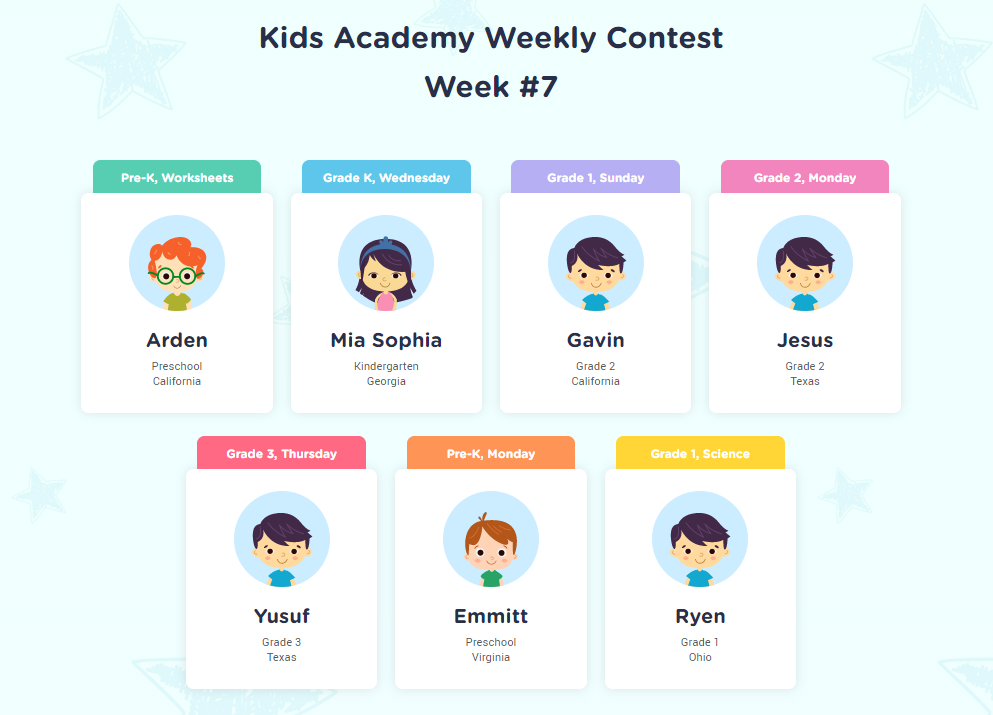Chess Worksheets for Ages 5-7
86 filtered results
-
From - To
Unleash your child's strategic potential with our engaging chess worksheets designed for ages 5-7! These expertly crafted activities are perfect for young learners to grasp the fundamentals of chess, from mastering piece movements to recognizing strategic patterns. With colorful illustrations and step-by-step instructions, our printable worksheets not only build essential thinking skills but also make learning chess a delightful adventure. Ideal for beginners, these resources promote cognitive development, patience, and problem-solving abilities. Download and watch as your child enjoys, learns, and excels in the timeless game of chess! Start their journey to becoming a mini grandmaster today.
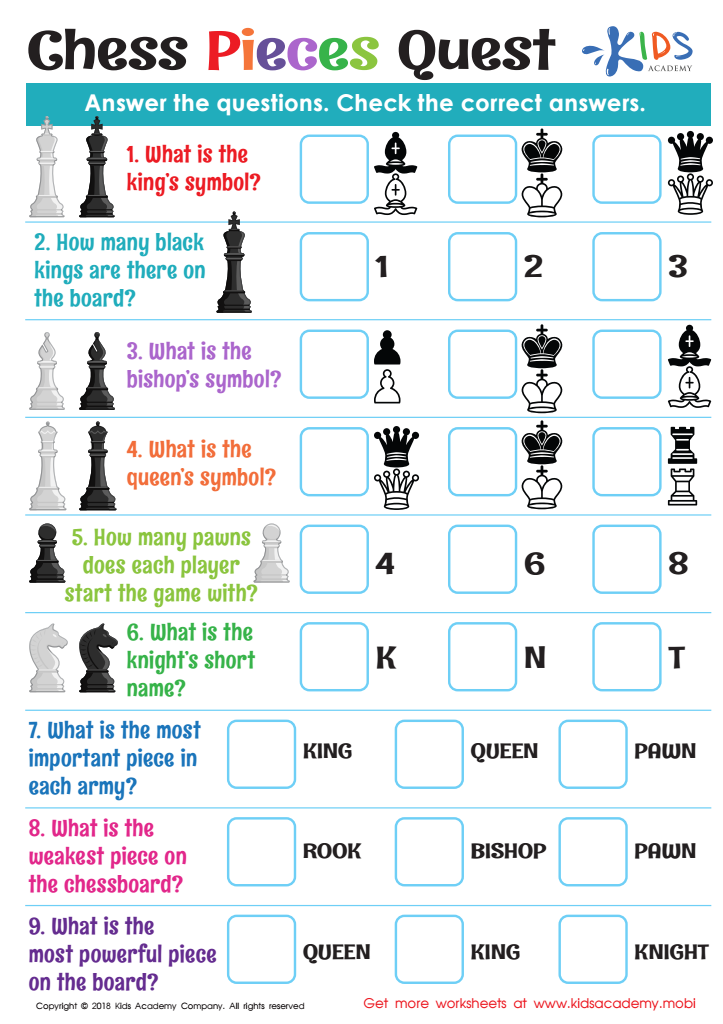

Chess Pieces Quest Worksheet
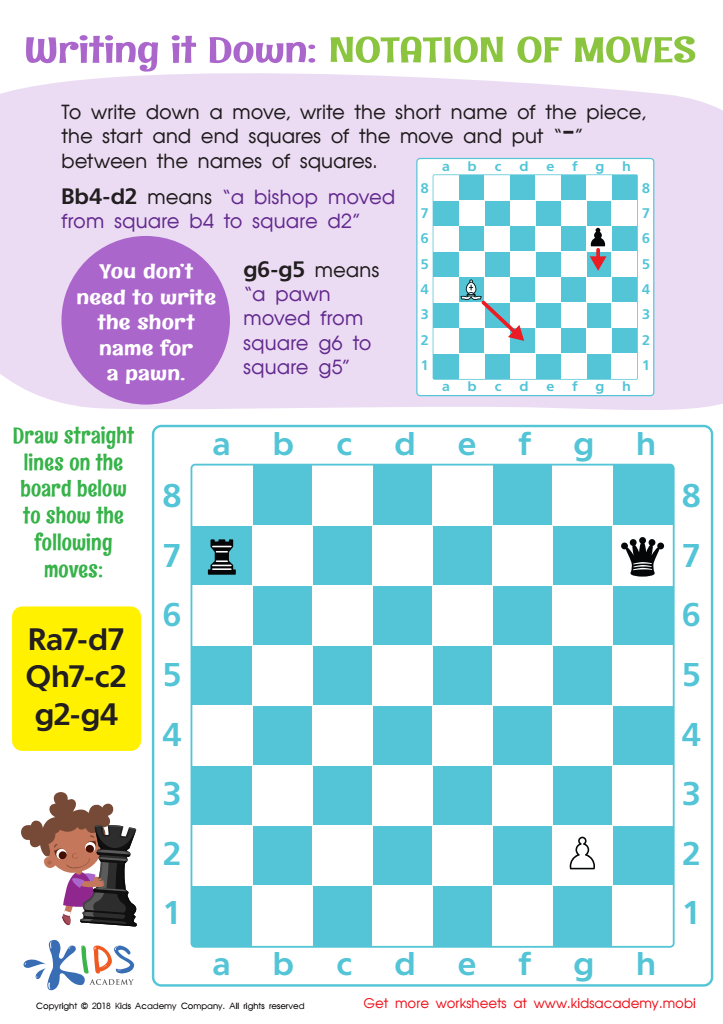

Notation of Moves Writing it Down Worksheet
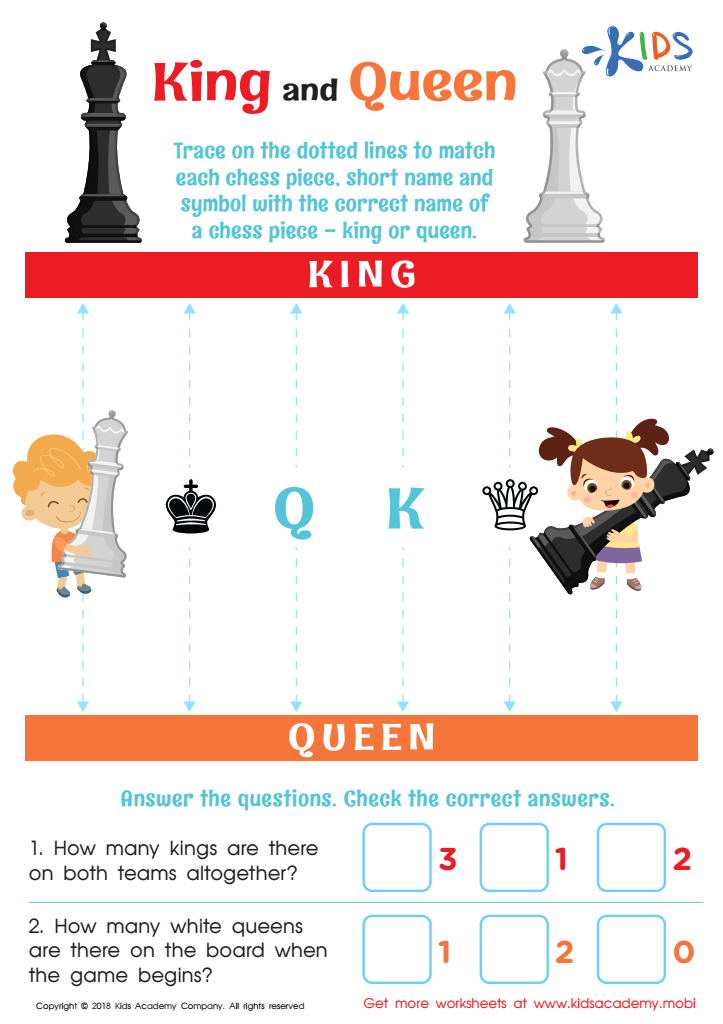

King and Queen Worksheet
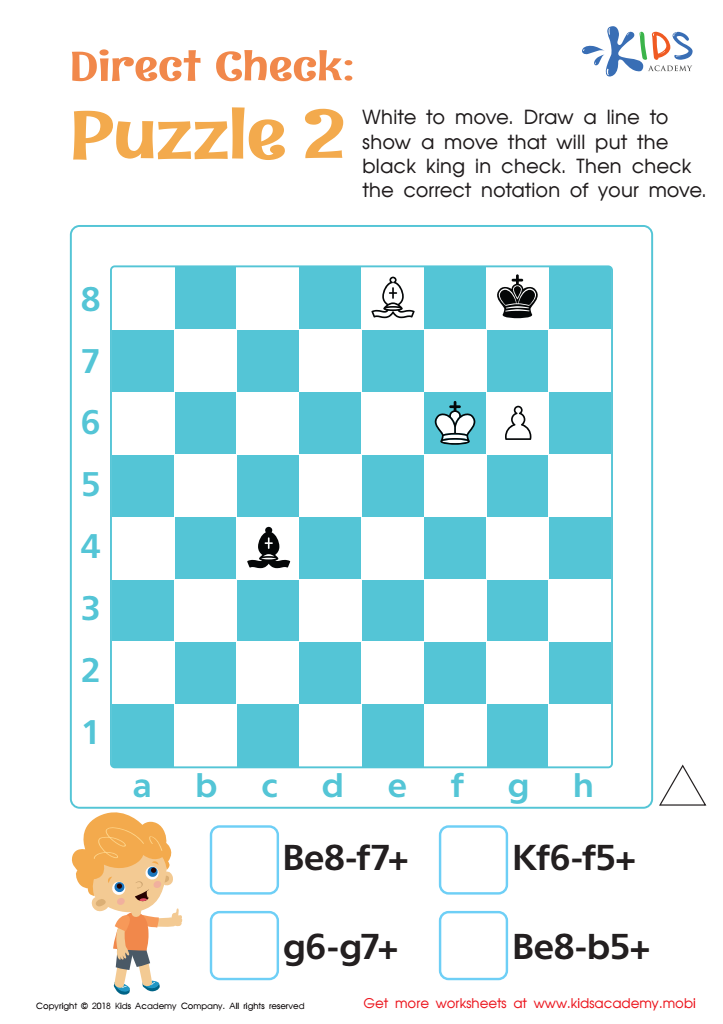

Direct Check: Puzzle 2 Worksheet
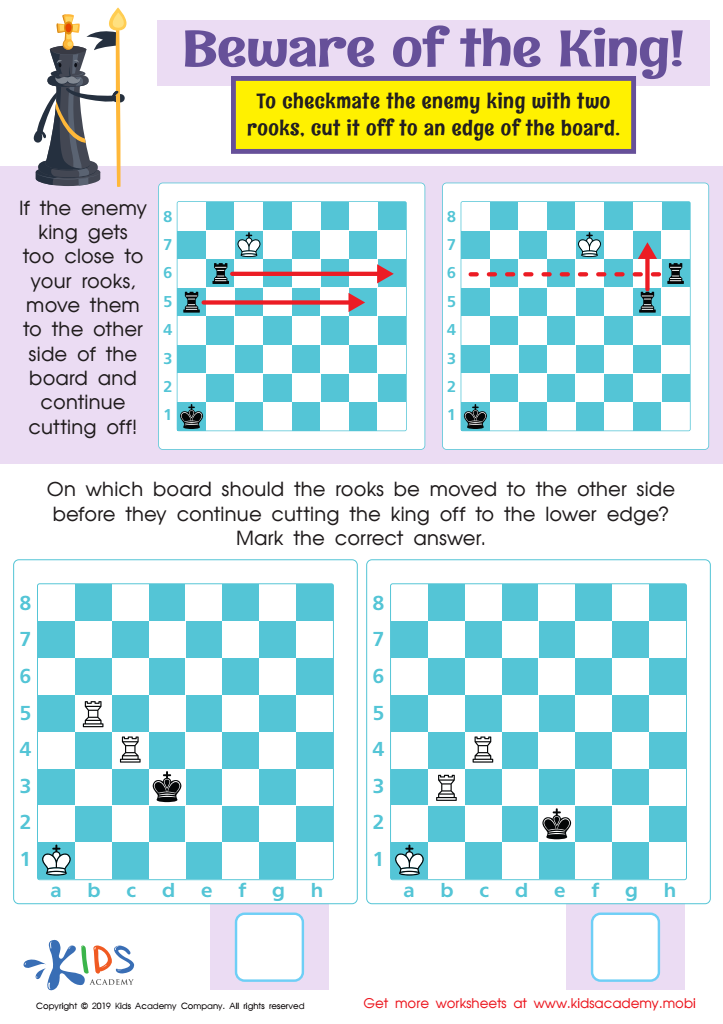

Beware of the King! Worksheet
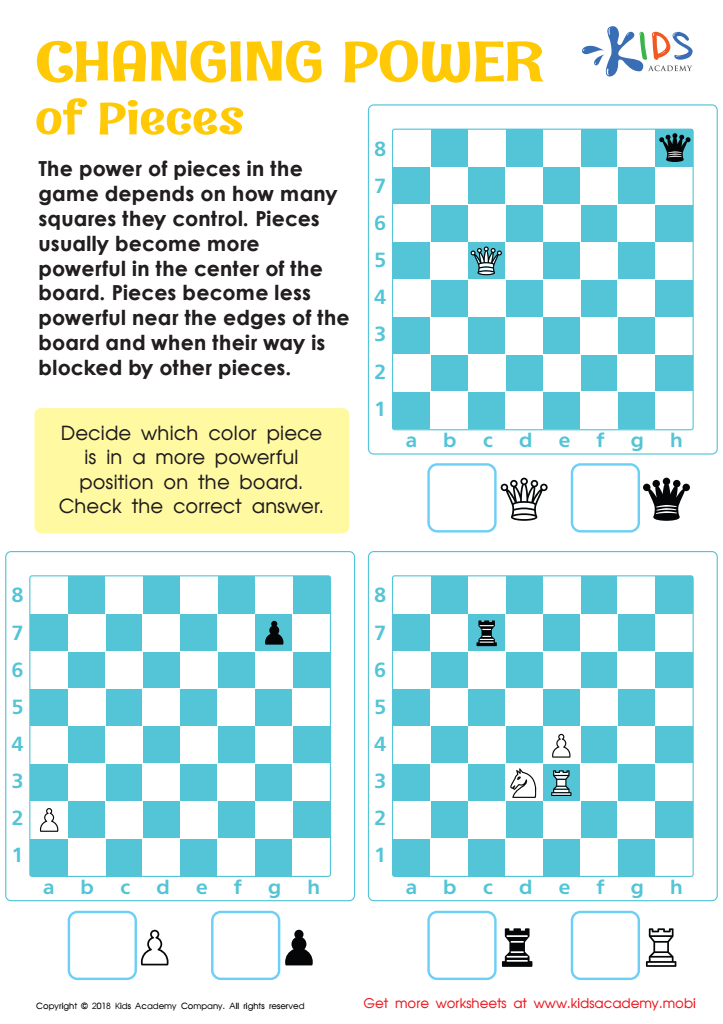

Changing Power of Chess Pieces Worksheet
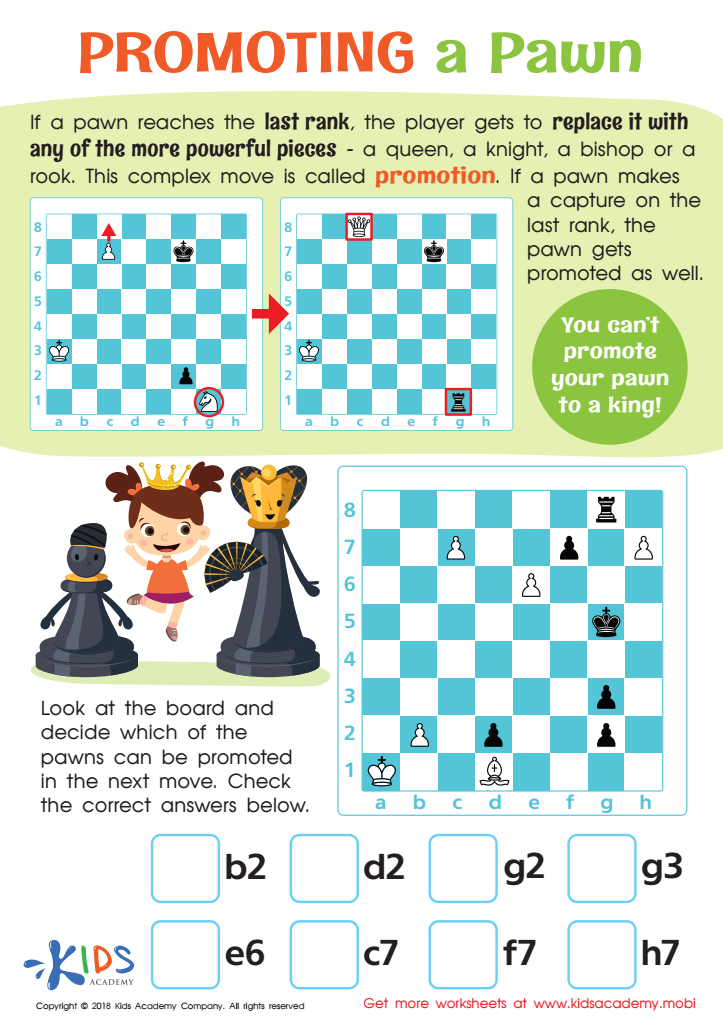

Promoting a Pawn Worksheet
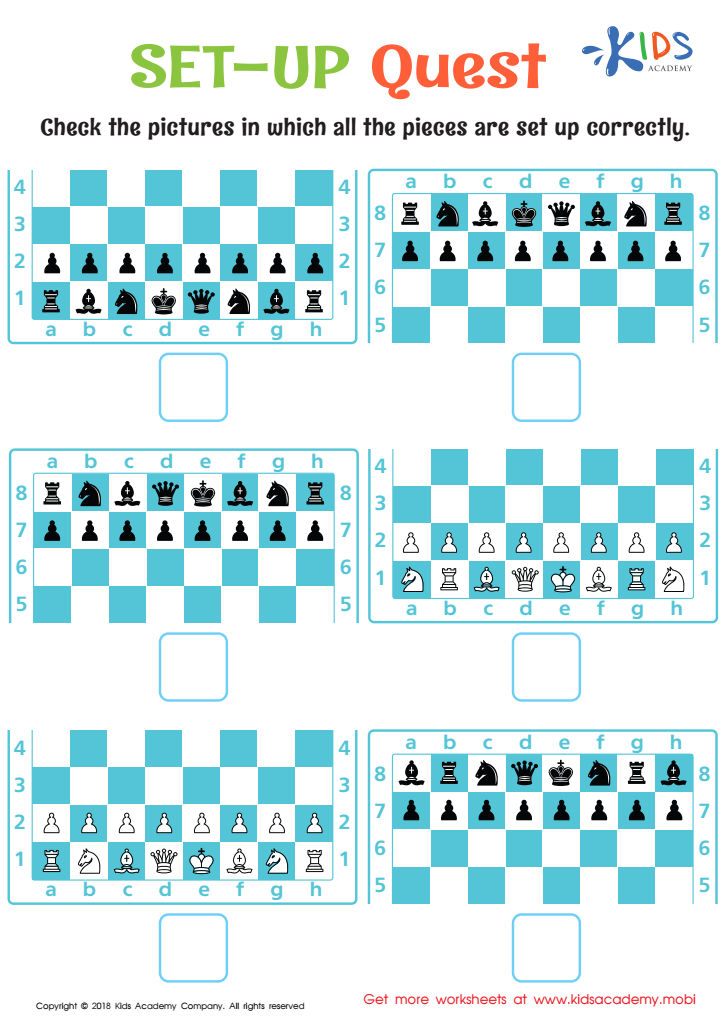

Set-up Quest Worksheet
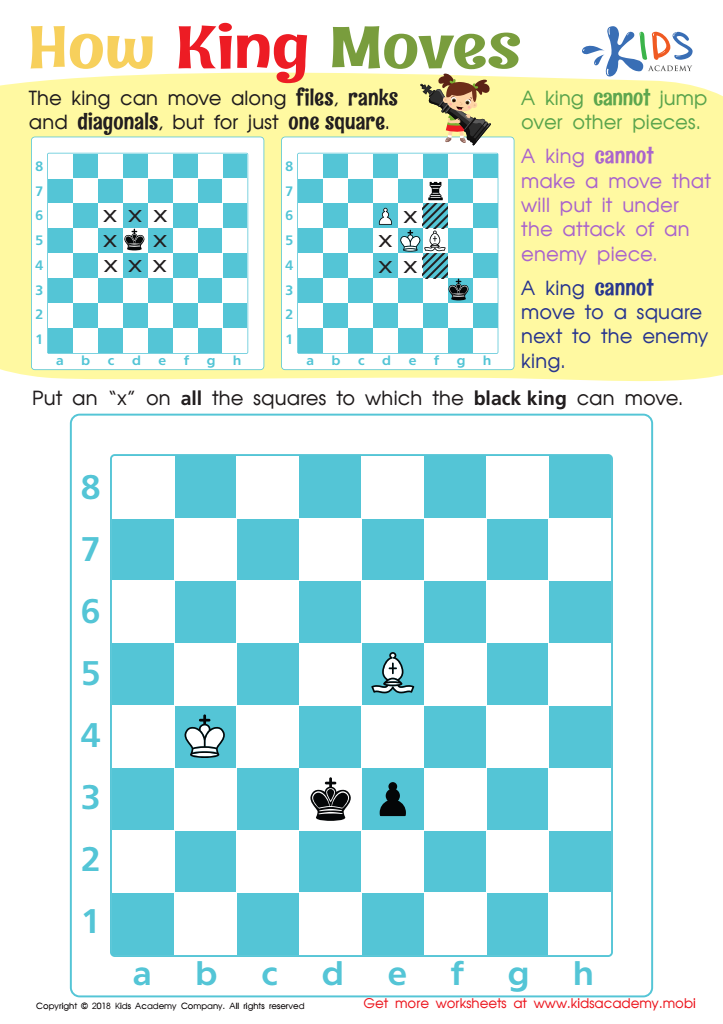

How King Moves Worksheet
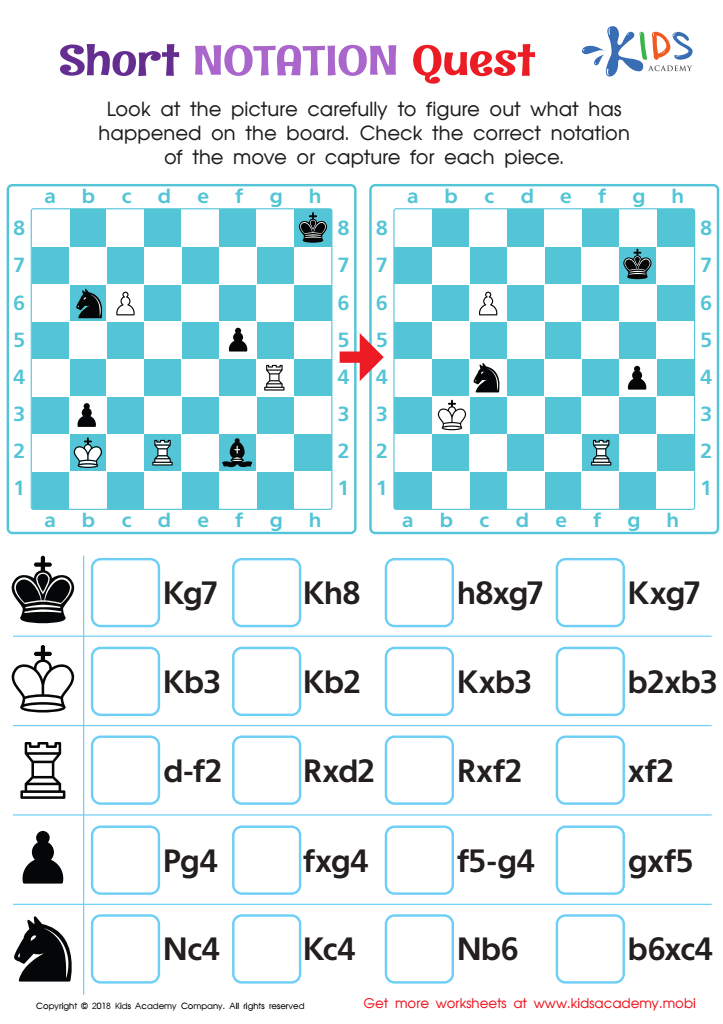

Short Notation Quest Worksheet
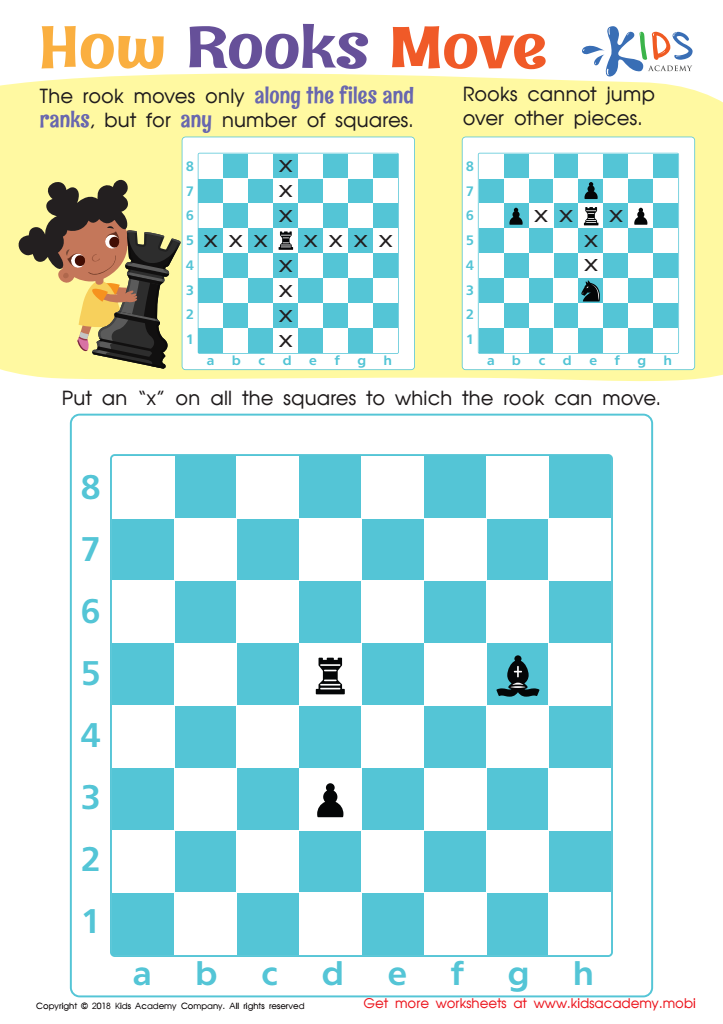

How Rooks Move Worksheet
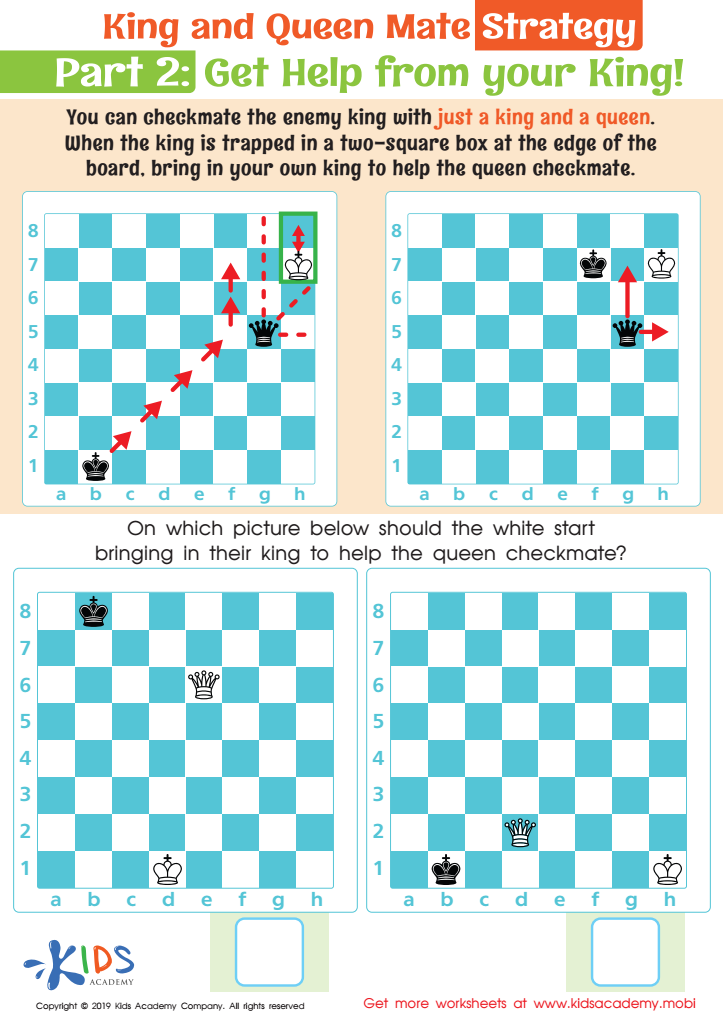

King and Queen Mate Strategy: Part 2 Worksheet
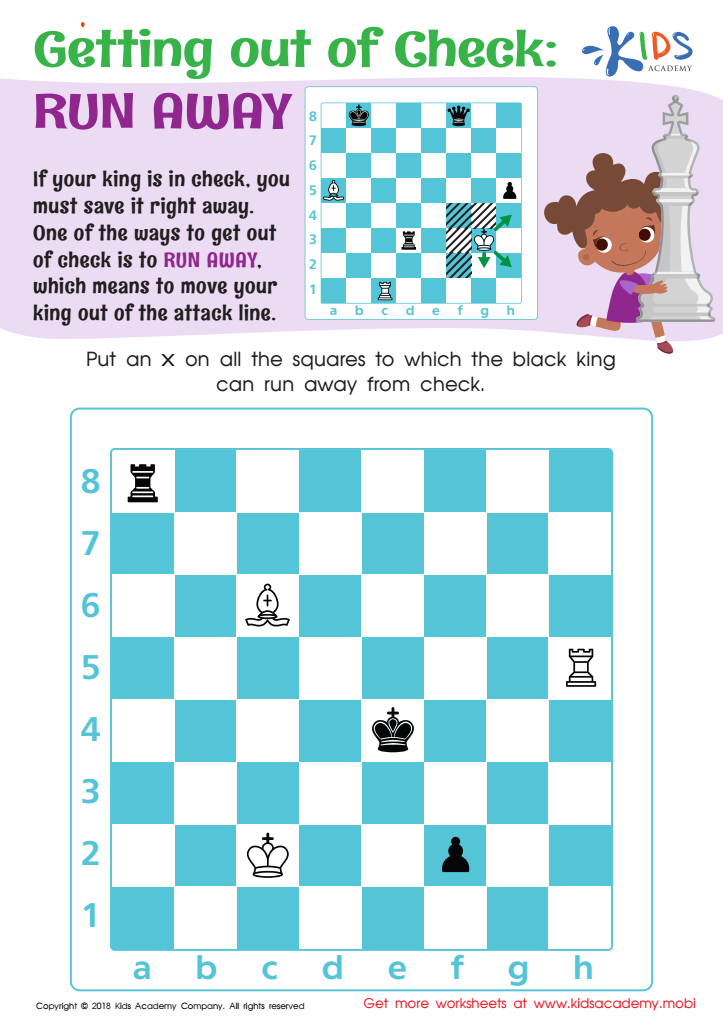

Getting out of Check: Run Away Worksheet
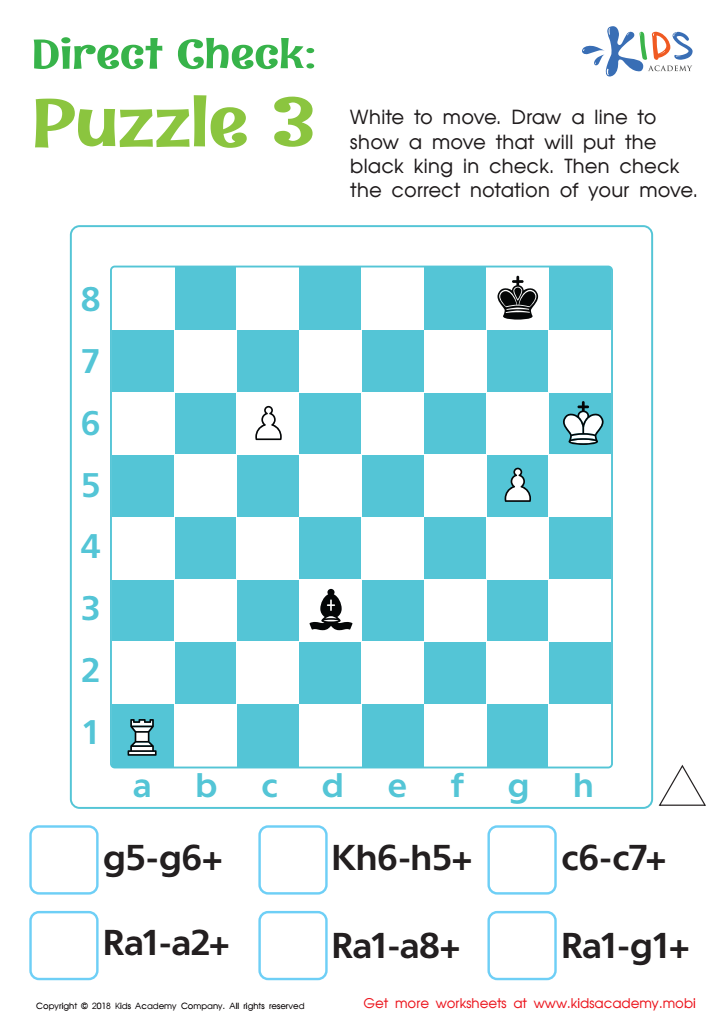

Direct Check: Puzzle 3 Worksheet
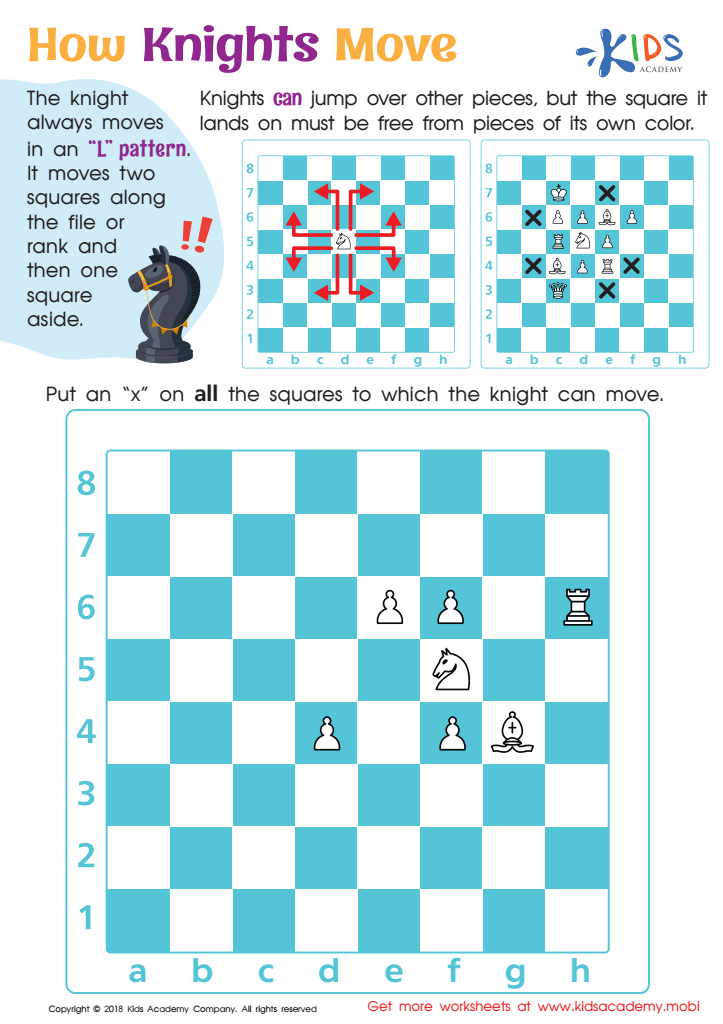

How Knights Move Worksheet
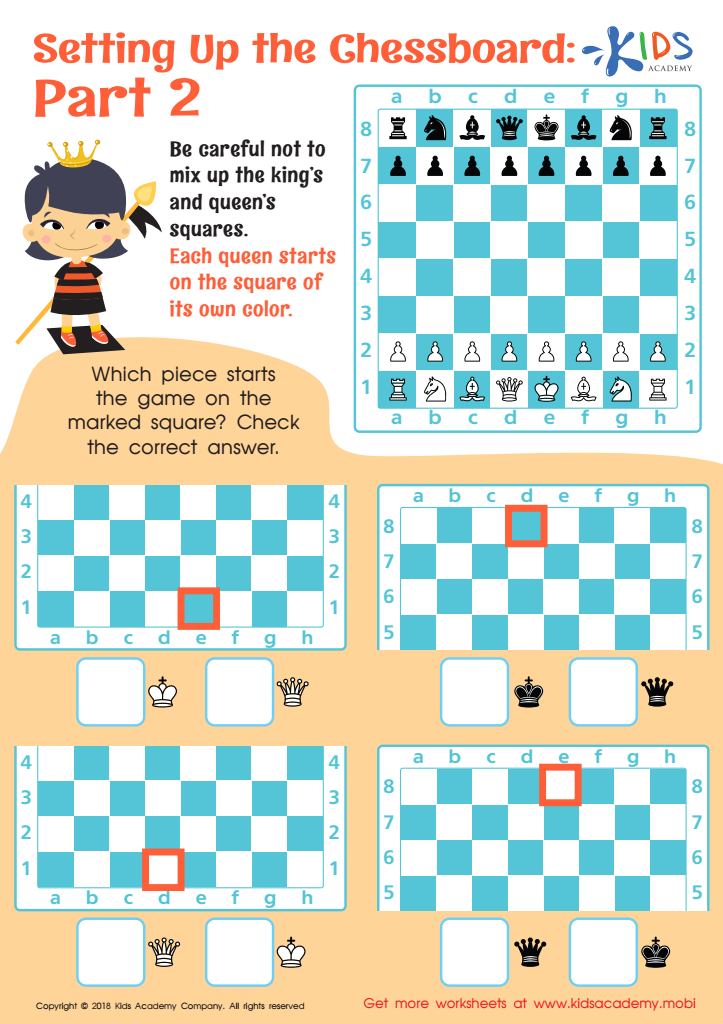

Setting up the Chessboard: Part 2 Worksheet
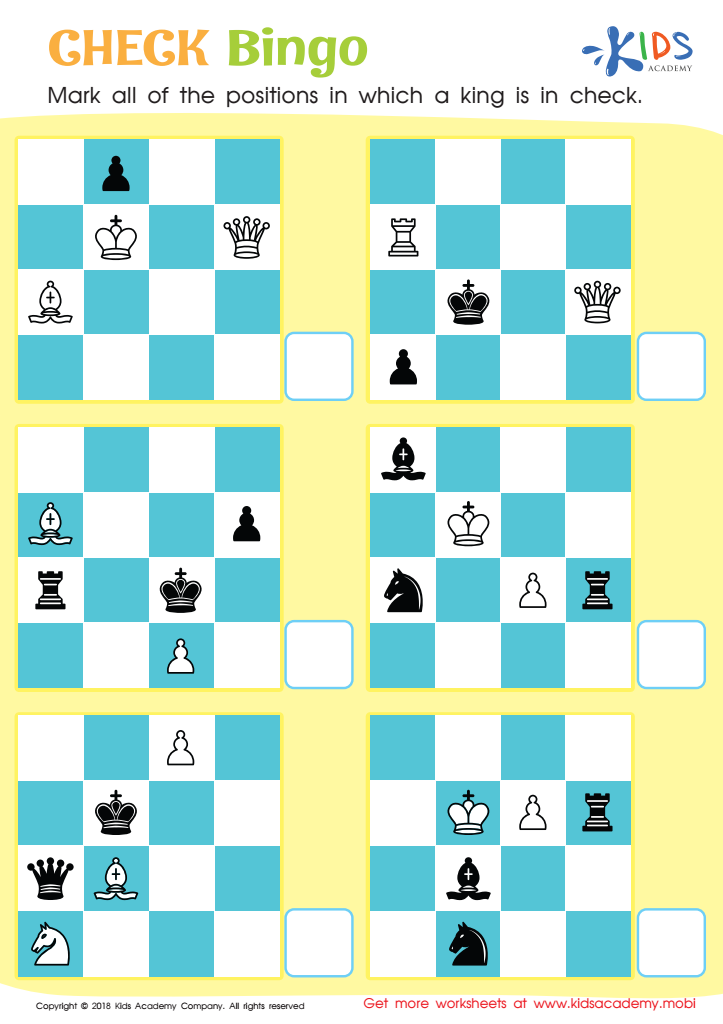

Check Bingo Worksheet
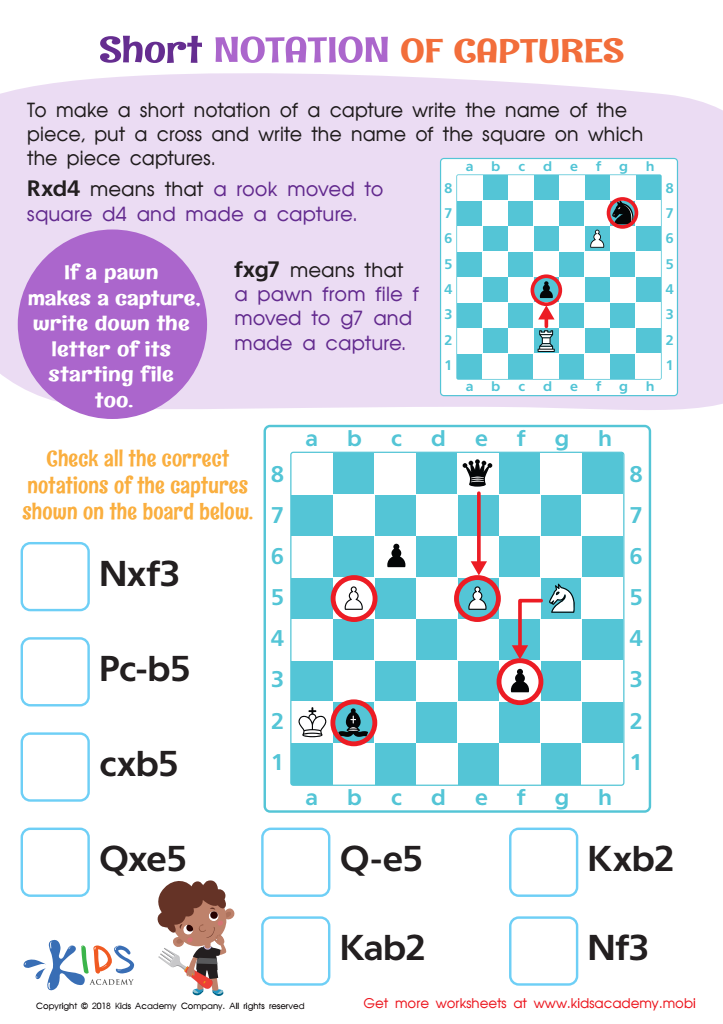

Short Notation of Captures Worksheet
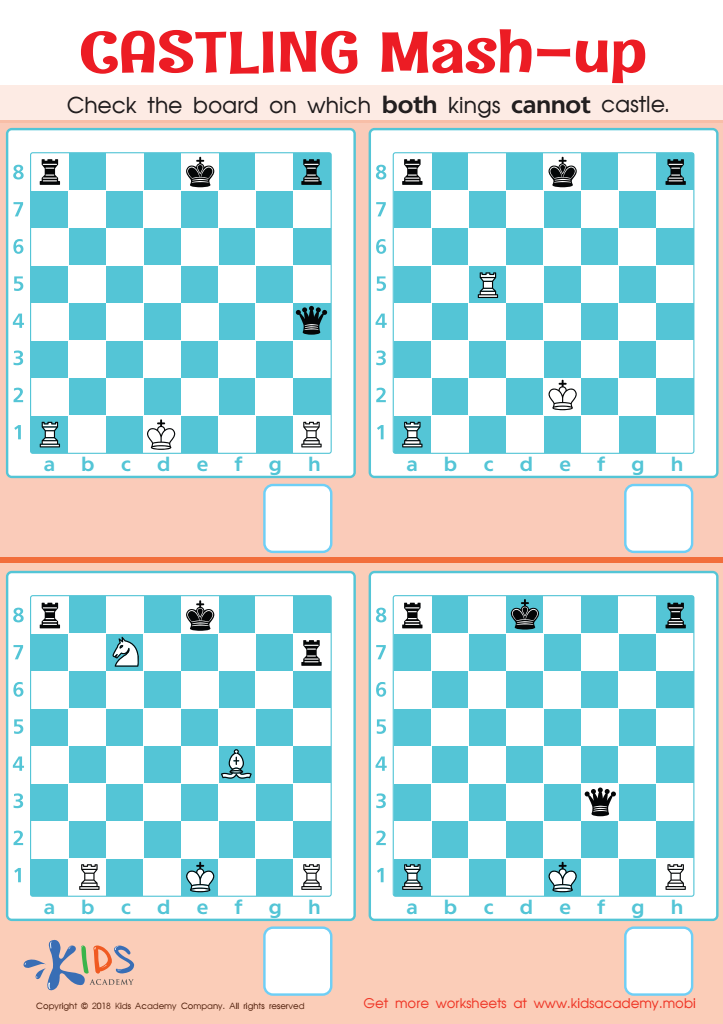

Castling Mash–up Worksheet
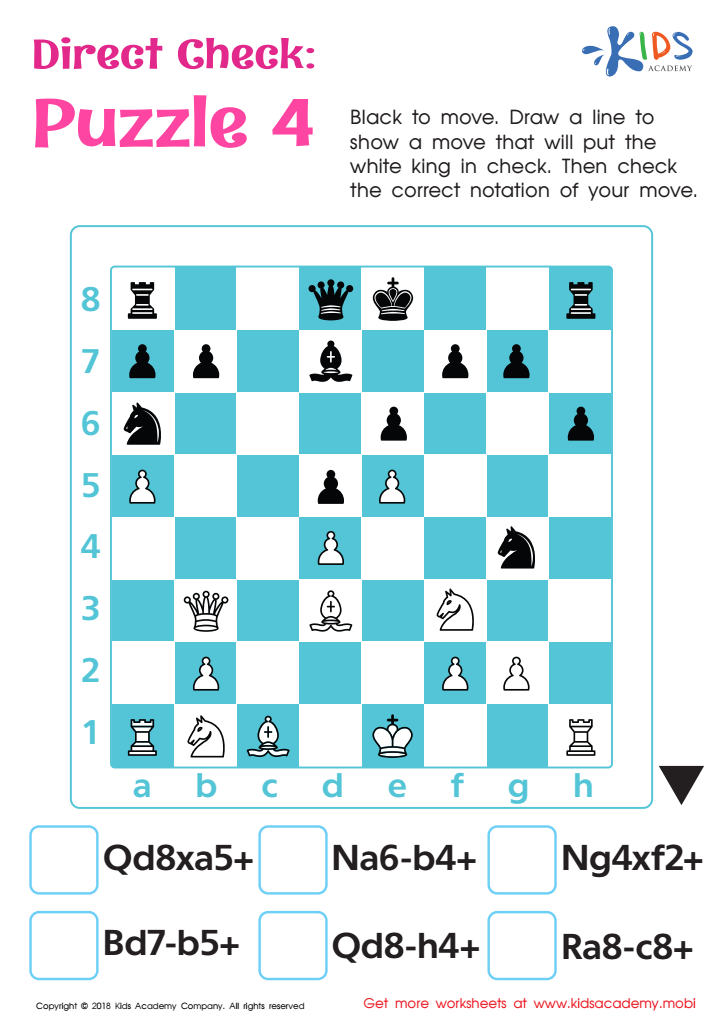

Direct Check: Puzzle 4 Worksheet
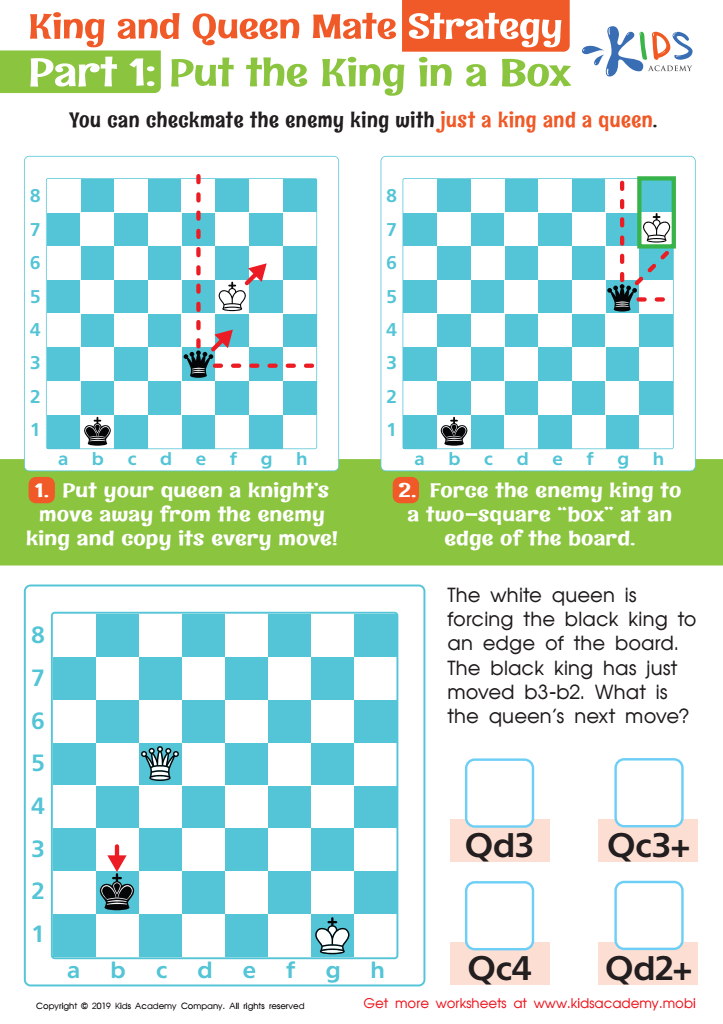

King and Queen Mate Strategy: Part 1 Worksheet
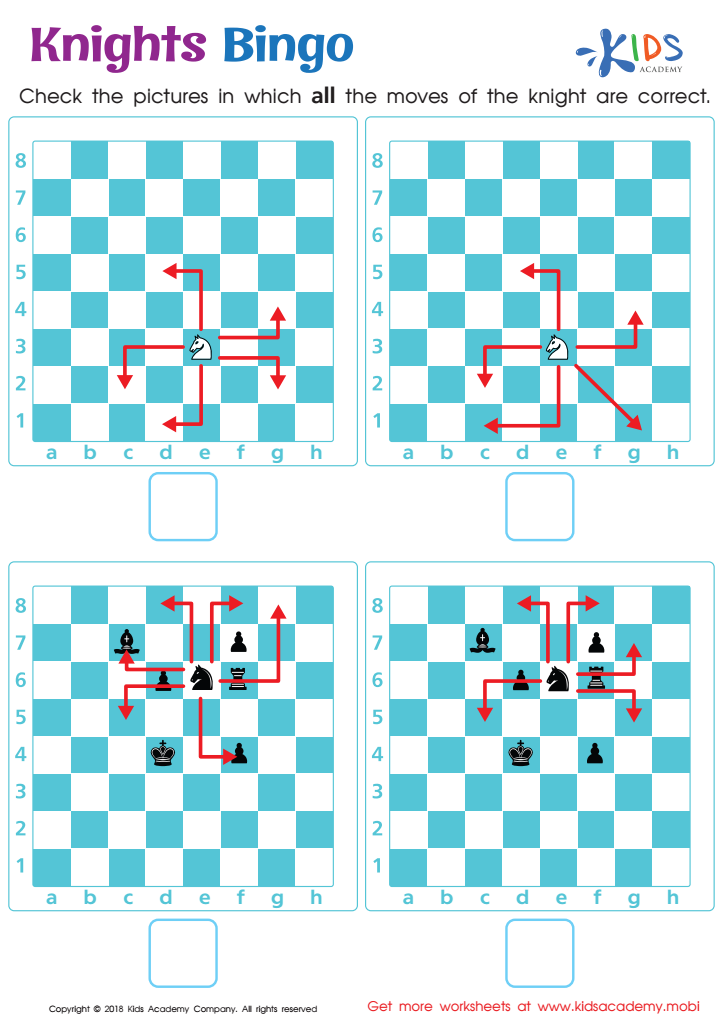

Knights Bingo Worksheet
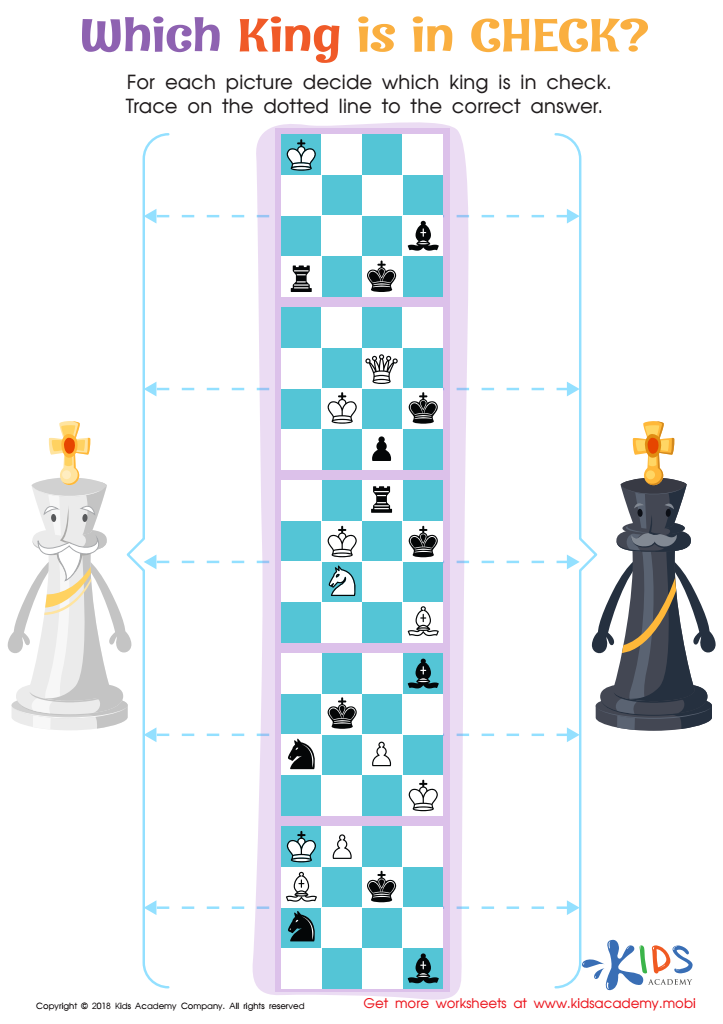

Which King is in Check? Worksheet
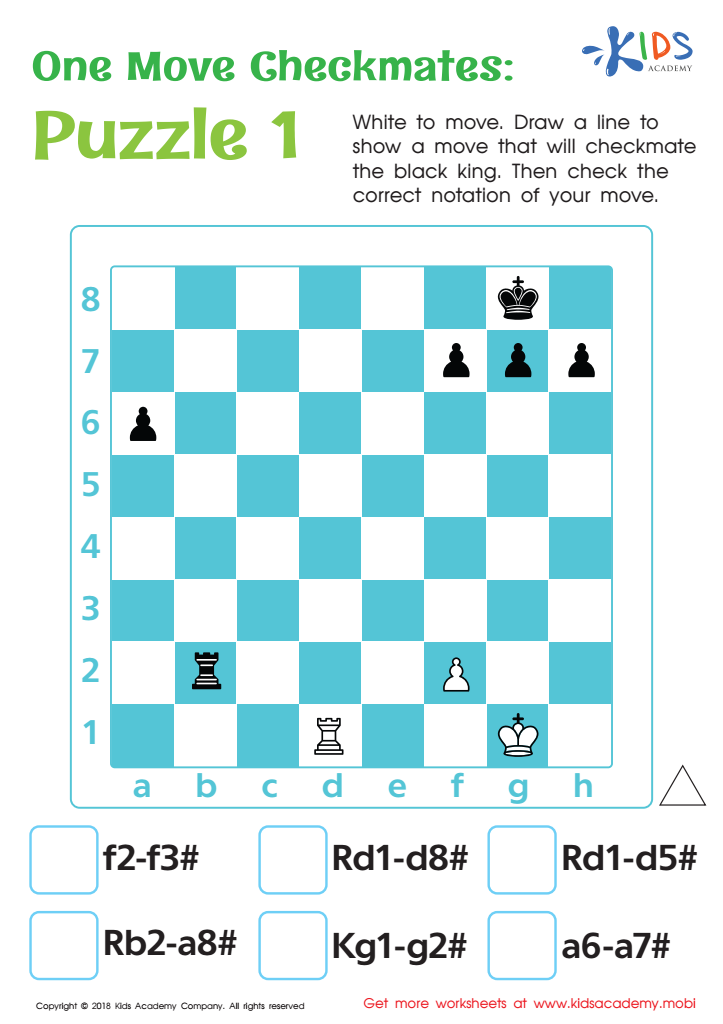

One Move Checkmates: Puzzle 1 Worksheet
Introducing chess to children aged 5-7 serves as a powerful educational tool and promotes intellectual growth. At this impressionable age, their minds are like sponges, absorbing new concepts and skills rapidly. Chess, a game of strategy and critical thinking, offers myriad developmental benefits.
Firstly, learning chess enhances cognitive abilities such as memory, concentration, and problem-solving skills. The game requires players to remember the moves, recognize patterns, and plan several steps ahead. These skills translate seamlessly into academic performance, benefiting mathematics and literacy, where similar problem-solving and pattern recognition are key.
Secondly, chess teaches patience and discipline. Young children learn the importance of thinking before acting, a vital life skill. The game's nature encourages them to think critically about their decisions and foresee potential outcomes, fostering a reflective mindset rather than impulsive behavior.
Moreover, chess nurtures resilience and a healthy competitive spirit. In chess, losing is part of the learning process. It helps children cope with setbacks constructively, understanding that losing represents an opportunity to learn and improve.
Lastly, chess transcends language and cultural barriers, offering social benefits. Children can connect over a shared game, fostering friendships and teamwork.
Parents and teachers should prioritize chess, as it significantly contributes to holistic cognitive and emotional development in young children.
 Assign to My Students
Assign to My Students







